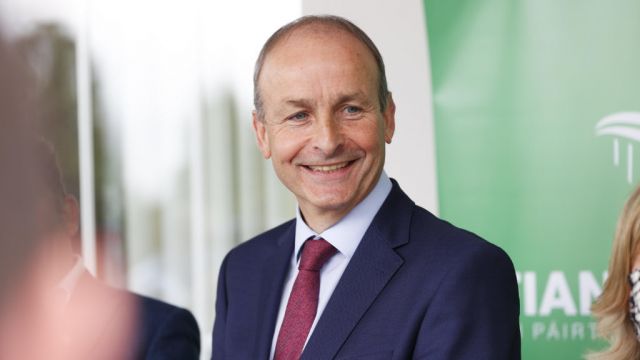The Taoiseach has said that Ireland will continue to engage in discussions about global tax reform in a “constructive” way.
Speaking in New York after a meeting with the Governor of New York State, Kathy Hochul, Micheal Martin told reporters that Ireland would continue to discuss the Organisation for Economic Co-operation and Development (OECD) agreement on a reform of global tax rules.
The country is one of only a handful of nations not to agree to the major OECD agreement, which is backed by more than 130 countries worldwide, as well as the EU.
Mr Martin said that 12.5 per cent remains Ireland’s corporate tax rate, but added: “There’s discussions under way within the OECD and we have made it very clear from the outset that we are engaging in the OECD process in a constructive way. And we want certainty and we want continuity.”
The Taoiseach declined to give a commitment about whether Ireland’s highly-prized corporate tax rate would remain at 12.5 per cent into the future.
“We are engaged in a process. At the moment, we haven’t agreed to the conclusions that have been arrived at in that process because they don’t give us any certainty or continuity about the future,” he said.
Mr Martin is in New York for a week of engagements at the UN General Assembly.
Enjoyed my visit with Governor of New York @GovKathyHochul today.
We shared our experiences in tackling the pandemic, and the importance of connectivity between our two countries.
We also discussed her proud Kerry roots, and her family’s love for the GAA. pic.twitter.com/aYKRDULTAw— Micheál Martin (@MichealMartinTD) September 20, 2021
Advertisement
Speaking at a press conference alongside Ms Hochul, whose ancestors hail from Co Kerry, Mr Martin said that the coming weeks will be “important” as discussions continue.
He said that he would “not be making a commitment one way or another to any individual companies” about Ireland’s future tax arrangements.
Earlier in Dublin, Finance Minister Paschal Donohoe told the European Commission that Ireland could yet remain outside the global tax agreement.
At a meeting with the European Commissioner for the Economy Paolo Gentiloni on Monday, Minister Paschal Donohoe said it was “not appropriate” at present for Ireland to sign up to the OECD agreement, which is backed by 130 countries.
He said Ireland is seeking further assurances on the predictability and certainty of the agreement, ahead of a mid-October deadline to finalise the deal.
Mr Donohoe said Ireland, which relies heavily on its low corporate tax rate of 12.5 per cent, would take the decision based on the best interests of its economy, and not on external pressures.
He said: “I remain committed to seeing whether the process can yield an outcome that Ireland would be willing to consider joining.
“But equally, I have communicated to my colleague that where we are at the moment, of not being in the agreement, is a position that could continue.
“This a very, very important process. It’s a very, very important negotiation.
“I’m very clear that it is not appropriate for Ireland to be in the agreement now.
“That may continue to be the case.
“But equally, we are working very hard to see if an agreement is possible that would allow Ireland to join.”
He said proposals that the corporate tax rate could be set “at least” at 15 per cent, were “deeply problematic” for Ireland.
He added that there would be “consequences” for Ireland whether it joined the agreement, or chose to remain outside of it.
Ireland is one of just nine countries yet to sign up to the OECD framework to reform the global corporate tax regime.
Mr Gentiloni said it was “not the moment” to talk about the potential consequences for Ireland of rejecting the deal.
He added: “This is the moment to co-operate, to continue our dialogue.
“And to leave to the Irish government, the time, the opportunity, in this discussion with the OECD, to take the right decision in the interest of the Irish citizens.
“Of course, the European Commission position is very clear.
“We believe that having this global agreement would help the stability, predictability of the global taxation systems.
“At the same time, having been in office also at national level, I know perfectly well that the Government has to take decisions, considering different aspects of this.”
There are concerns that Ireland’s international reputation could be damaged by remaining outside the OECD framework.
Asked if Ireland would be trusted to senior international positions, such as his own as President of the Eurogroup of finance ministers, should it remain outside a deal backed by 130 other countries, Mr Donohoe insisted any decision would be made solely on the country’s economic interest.
He said: “The critical thing here isn’t so much what our role is in different organisations.
“The critical thing is the ability of our economy to grow, to retain jobs, to get new jobs in the future and to continue to be competitive.
“That is the metric through which any decision here has to be evaluated and that is the only lens that I will be using in the decision that I make.”
But Mr Gentiloni said he remains confident that an agreement can be reached.







